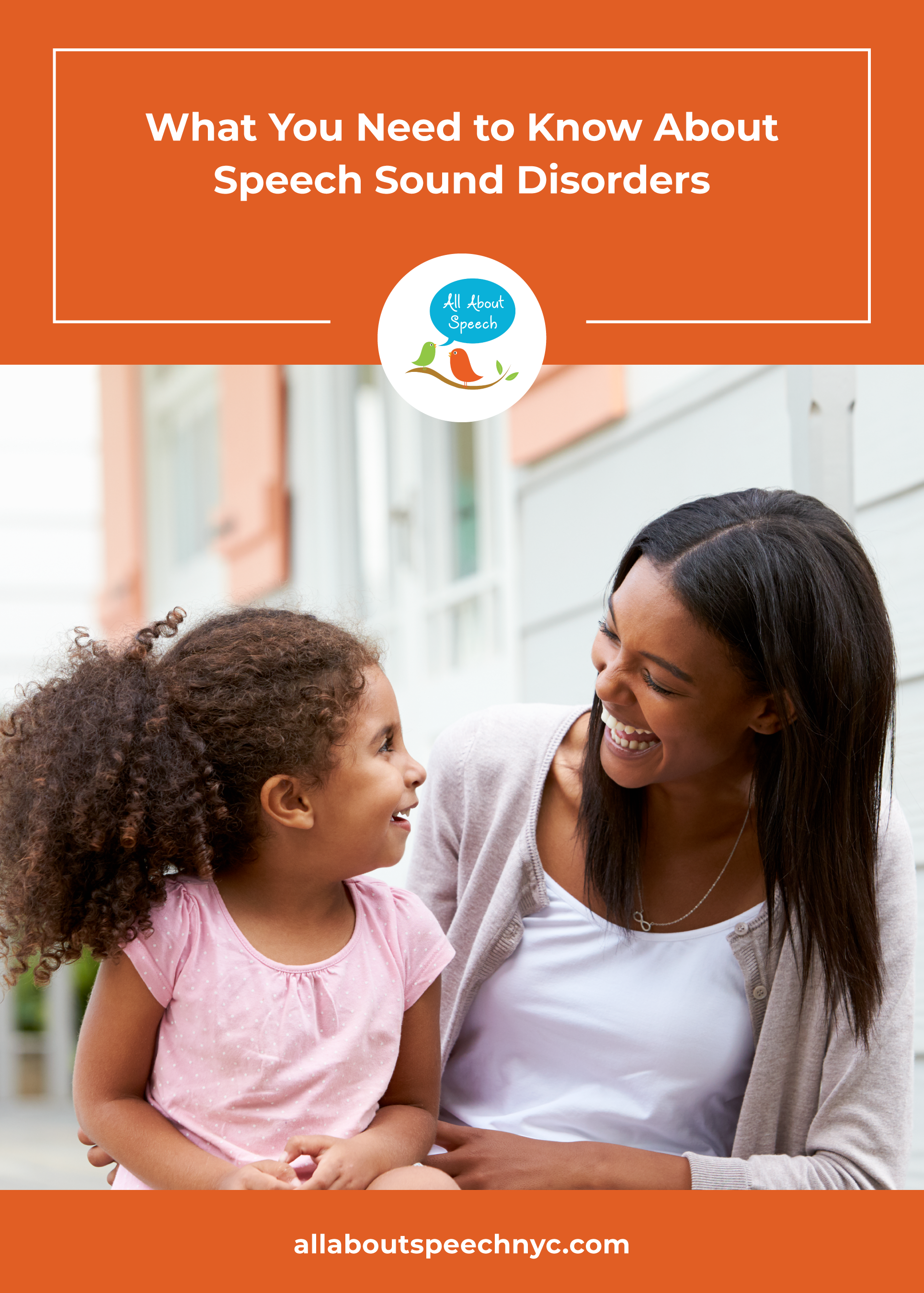What You Need to Know About Speech Sound Disorders
Fast facts:
Children start to learn speech with babbling during their first few months of life.
Your child starts to put sounds into words by the time she has her first birthday.
Children learn speech sounds as they grow.
It is important to remember that children develop speech at different rates.
What Is a Speech Sound Disorder?
A speech sound disorder means a child has problems saying some sounds. This may make it hard for people to understand what the child is trying to say. Young children will make speech errors as they learn, this is normal. Children who continue to have problems may have a speech sound disorder also called an articulation or phonological disorder.
What Causes a Speech Sound Disorder?
Most speech sound disorders have no known cause. Young children who have a lot of ear infections might have problems hearing speech sounds. A hearing loss can make it hard for children to hear certain sounds and can cause a speech sound disorder. This makes it very important to get your child’s hearing checked.
When Do Children Learn Their Sounds?
Most children who are learning English say sounds and speech patterns by these ages:
By 2 years
Uses sounds: p, t, k, b, d, g, m, n, w, y, and h
Says word endings such as: the t in cat (although substitutions may occur)
By 3 years
Uses k, g, f, and s sounds (although s may sound funny)
Uses consonant clusters/blends, such as: st in star
Is understood by family and friends most of the time
By 4 years
Says all of the sounds in words, except in longer words such as : paghetti for spaghetti
Is understood by family, friends, and strangers almost all of the time
By 6 years
Uses v, l, and r sounds appropriately and other s-family sounds including: z, sh, ch, and j
By 8 years
Uses th sounds
Produces s and other similar sounds appropriately (without distortions or lisps)
Has “adult-like” speech
By age 8, children should be able to produce all sounds correctly in sentences and when reading out loud.
What Can I Do to Help My Child?
Always make correct speech sounds for your child, but be careful not to repeat the mistakes your child makes. Be sure to read to your child often. This is extremely important as the more he hears you speak, the more likely he is to say sounds correctly.
When Should I Get Help?
If your child does not make sounds that her friends of the same age can make, there may be a problem. Be sure to have her hearing tested. You should take your child to see a speech-language pathologist, or SLP, if your child:
is not talking by age 2,
is 3 or older and others have difficulty understanding her.
Let’s Talk Permission is granted for unlimited copying of “Let’s Talk.” © American Speech-Language-Hearing Association, 2010 8064-35
Sandy Dorsey, President, All About Speech, Little Voices, Big Conversations.
Follow us on Facebook and Instagram. See what She Leads Africa is saying about Sandy Dorsey.


